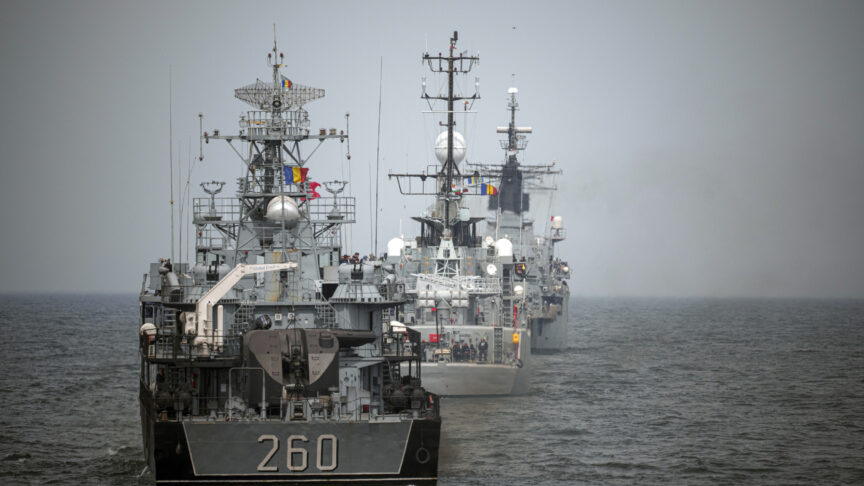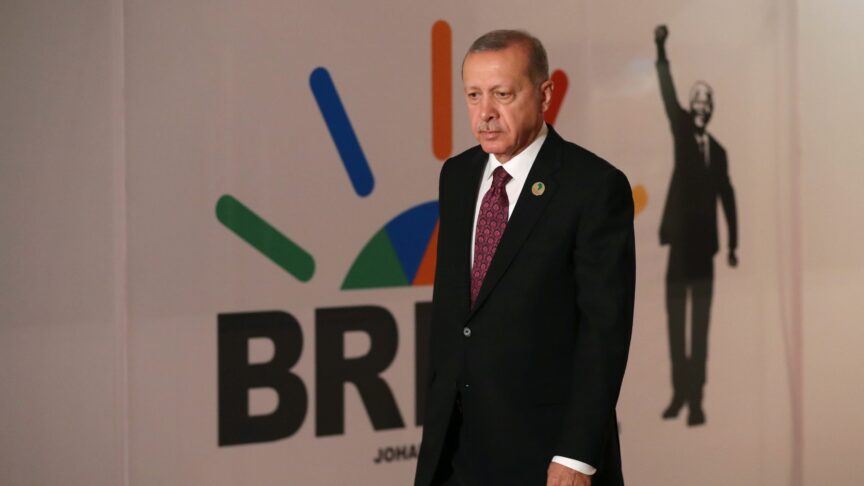Moldova’s gas deal with Russia: David tries to draw with Goliath
The EU should learn from Moldova’s response to its gas crisis. It would be a mistake to link Russian concessions on energy prices to talks in areas such as trade policy
Last month, as all of Europe faced higher energy prices, a gas crisis forced tiny Moldova to declare a state of emergency. Russian energy firm Gazprom raised the price of the gas it supplied to the country to $790 per 1,000 cubic metres, and cut deliveries by one-third. Russia talked of linking concessions on the gas price to negotiations with Moldova over the breakaway region of Transnistria; the implementation of the European Union’s Third Energy Package (which threatened both the supply monopoly Gazprom has maintained since 1991 and the dominant local position of Moldovagaz, a firm half-owned by Gazprom); and even trade with the EU. The EU’s high representative, Josep Borrell, spoke of Russia’s “weaponisation of the gas supply”. More broadly, Russia was testing the mettle of Moldova’s new president, Maia Sandu, and her pro-EU government.
But, earlier this week, the sides reached a deal to end the crisis. Moldova has secured a five-year gas contract at what seems to be a lower price; Gazprom a commitment to talks over more than $700m of debt. The country appears to have avoided political concessions to Russia on broader relations with the EU. It will continue implementing general reforms to its energy market under the Third Energy Package, but will avoid restructuring Moldovagas, whose monopoly is the basis of the competition issue. So, who blinked first?
Moldova’s new government skilfully diversified its gas supply options. The country sourced emergency ‘technical gas’ to maintain pressure in pipelines from Romania, Poland, and Ukraine. Naftogaz, Ukraine’s state energy company, lent Moldova 15m cubic metres of gas. By the time the five-year contract is up, a new 150km pipeline that provides reverse supply from Romania – and that runs from Iasi to Ungheni, to Chisinau – should be fully operational. The basic pipeline is complete, but Romania still needs to construct a pressure station on its side of the border, while Moldova needs to build connections from Chisinau to other parts of its territory, mainly those in the north. In October, the EU provided Moldova with €60m to subsidise its gas bills, as well as technical advice. This bought time, allowing the country to avoid panic concessions to Russia. Moldova has restored supply before the winter heating season. Arguably, however, the country had more time to sign a deal – once its partners had shown solidarity – and did so too quickly.
With Moldova having established a precedent of diversified supply, the Sandu government is now likely to work much harder than its predecessors on energy security and efficiency. Nonetheless, the new agreement will lead to a delay in the implementation of the key ‘unbundling’ elements of the Third Energy Package. After Moldova unilaterally released the agreement protocol, it seemed that the details of the arrangement were relatively unfavourable for the country (although current English translations of the protocol are imperfect). Russia and Moldova will begin negotiating an inter-governmental agreement (IGA) on energy this month. The preamble to the protocol declares that “the implementation of the European Union’s Third Package of Energy Legislation is an international commitment that Moldova has entered into” but also mentions the need to protect “the rights of investors”, a reference to Gazprom. The protocol also specifies “the necessity of not applying sanctions to ‘Moldovagaz’ JSC until the IGA enters into force by the end of 2022”, and “the non-application of forced ‘Moldovagaz’ JSC reorganisation” until the full settlement of Moldova’s debts – which could be difficult for Chisinau.
Moldova’s new government has skilfully diversified its gas supply options
The authorities in Chisinau arguably paid too much attention to the headline price of gas, given the potential hole in the Moldovan budget, at the expense of the structural aspects of the deal. Moldova will pay $450 for 1,000 cubic metres of gas in November. The Moldovans expect the price to go down thereafter; Gazprom expects it to rise a little. (Currently, the equivalent spot-market price is wavering between approximately $900 and $940.) There will be an independent audit of Moldova’s accumulated debt to Gazprom, as calculated by Moldovagaz, followed by a “conversation” about restructuring that debt. The final audit will be approved by the Moldovagaz board, which is controlled by Gazprom. From May 2022, Moldova must arrange “the repayment of the entire arrears, including penalties for five years”.
A new row between the sides could erupt in 2022. But Moldova is unlikely to be deterred from its pro-EU course. The EU showed solidarity with Moldova – as did Romania and Ukraine, which helped during previous crises, as well as Poland, which did not.
Nonetheless, Europe’s reliance on Russian energy supplies still poses a broader challenge. Nord Stream 2 might not concern Moldova, but it is seen as a huge strategic setback by other energy transit and bypass states – particularly Ukraine and Poland. And the EU is not really addressing Russia’s role in driving up energy prices.
Sandu gave a somewhat controversial interview to Russian paper Kommersant on 1 November. She denied reports in the Financial Times that Russia had tried to extract trade and political concessions from Moldova, claiming that “there were no such conversations in these negotiations on gas”. Both Moldova and the EU should avoid the trap of negotiating with Russia over everything at once – energy, trade policy, and internal politics are separate areas; the bloc should not link its interests in one for those in another. Otherwise, Russia will weaken the EU’s transformative power in eastern Europe. Indeed, Russia tried to undermine EU solidarity during the Moldovan crisis, by refusing to supply Romania with additional gas and thereby limiting its capacity to help Moldova. Trade negotiations between the EU and Moldova are for the two parties alone – and not for Russia to gatecrash.
The European Council on Foreign Relations does not take collective positions. ECFR publications only represent the views of their individual authors.



